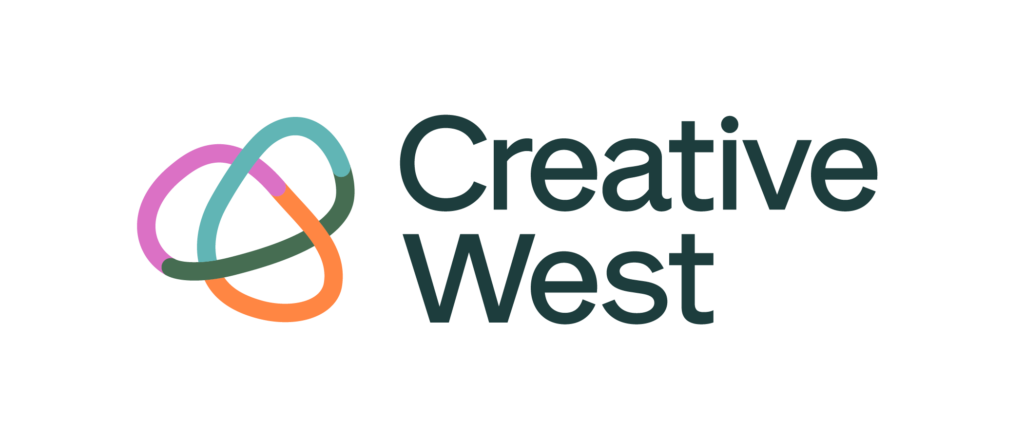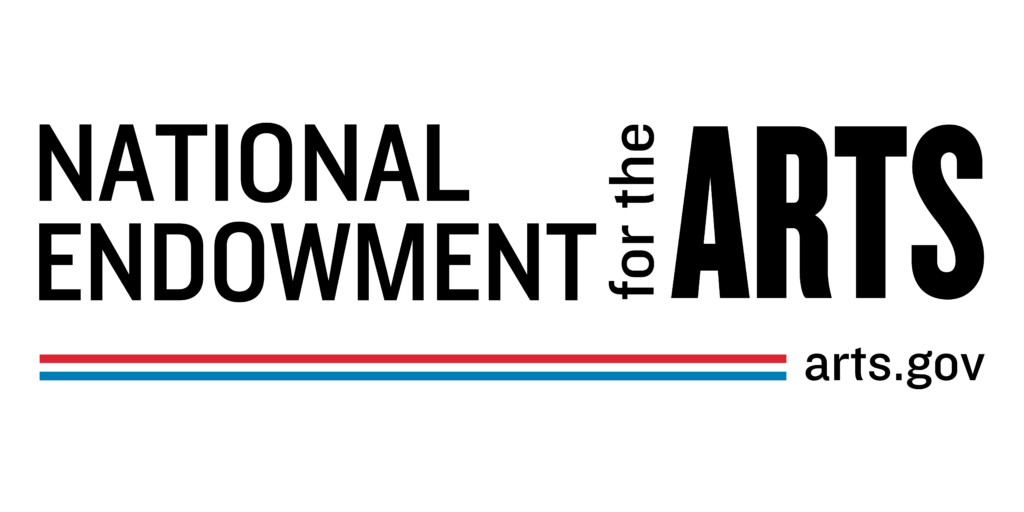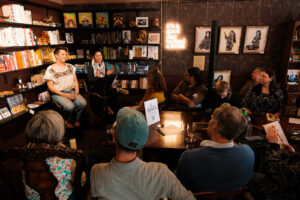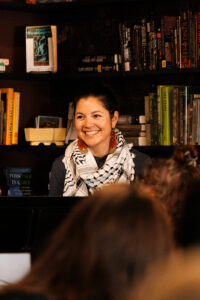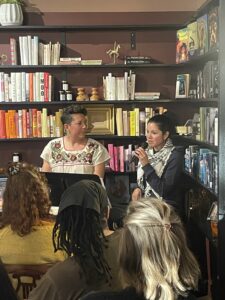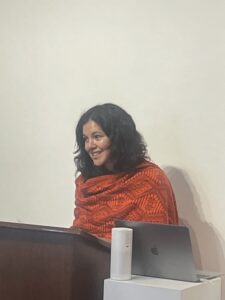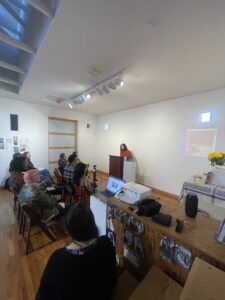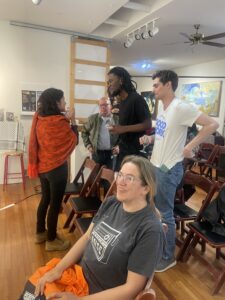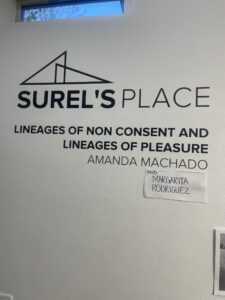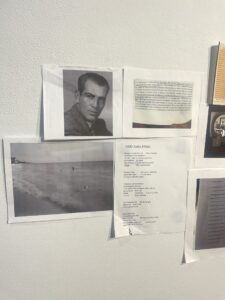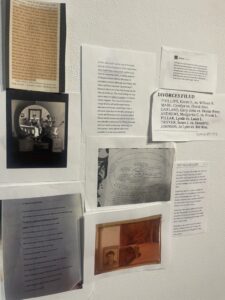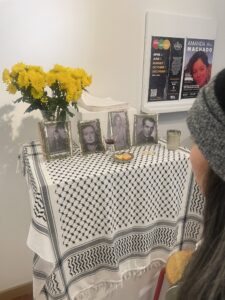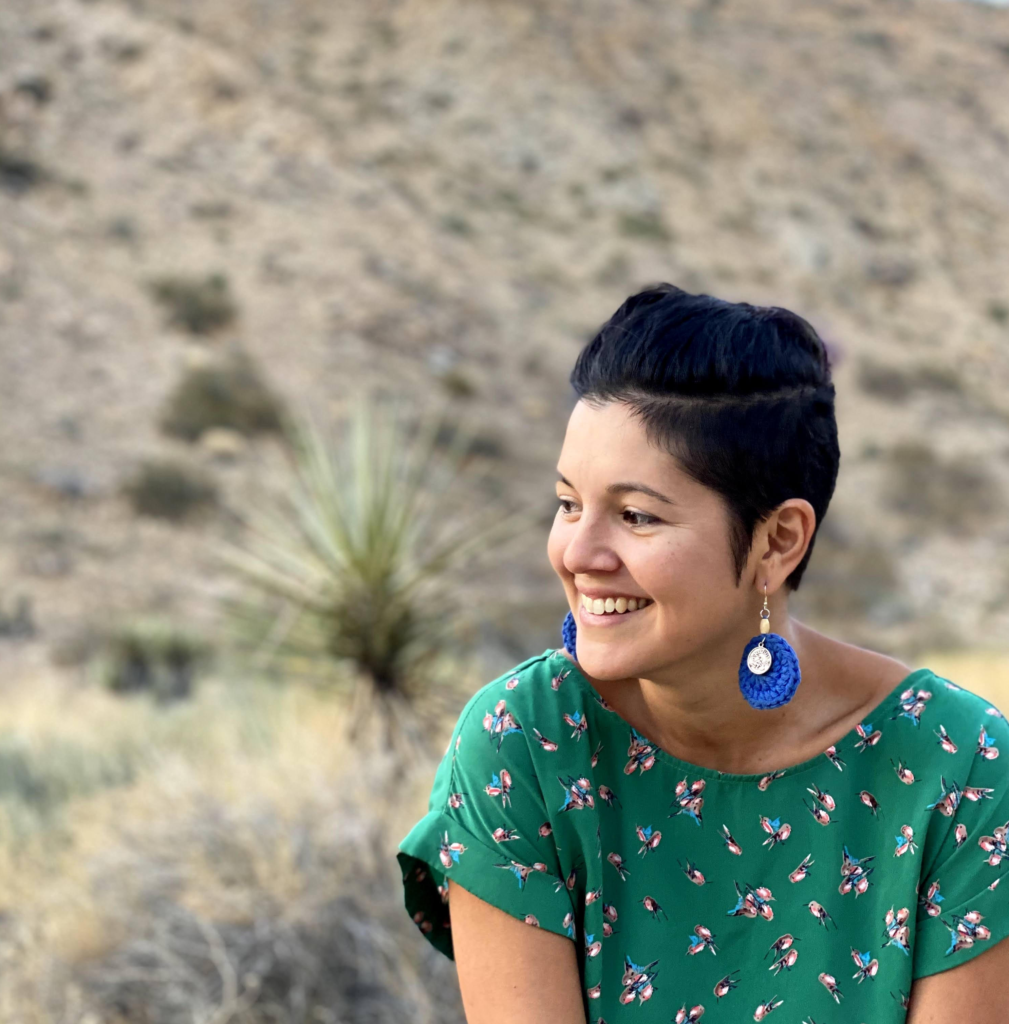
Biography
Amanda E. Machado (she/they) is a writer, public speaker and facilitator with ancestry from Mexico and Ecuador. Their work has been published in The Atlantic, Guernica, The Washington Post, Adroit Journal, Slate, The Guardian, Sierra Magazine, among many others outlets. In addition to their essay writing, Amanda also is a public speaker and workshop facilitator on issues of justice and anti-oppression for organizations around the world. She is also the founder of Reclaiming Nature Writing, a multi-week online workshop that centers the experiences of people of color in how we tell stories about the outdoors.
“I write stories that show how those of us — children of immigrants and displaced people, queers, gender-expansive folks — who grow up with our first experiences of ‘home’ and desire’ and ‘identity’ expanding past binaries, ultimately become the kind of people who want to take in the world intimately, who view travel as something we naturally must do. As a daughter of immigrants, everything in my body has always felt split between many countries. When I write about ‘travelers,’ I am writing about those whose bodies have always needed more than one place to survive.”
Amanda Machado received her BA in English Literature/Nonfiction Writing from Brown University.
Machado led a workshop exploring how queer writers and writers of color have used writing as a tool to define the future they desired but could not yet create. In particular, the class focused on writing from queer people of color from immigrant families. Through the inspiration of work from Audre Lorde, Daisy Hernandez, Ocean Vuong and others, they wrote on prompts that help unearth stories about how queerness and the immigrant experience help us think differently about desire, respectability, “the American Dream,” and family legacy.
For their final event, Machado read excerpts from essays and a book project that explore how sexuality and desire connects her to the women of her lineage. In this project, she explores both the lineage of non consent in her family, as well as lineages of pleasure, and the queer elements of all immigrant woman narratives when we think of queerness as an act of bodily autonomy, rather than only a sexual orientation.
These essays meditate on the question: How do you create a life you’ve never seen before, and how do you trust that it honors those before you?
This programming was supported in part by Creative West and the National Endowment for the Arts.
